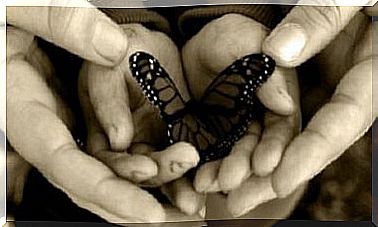White Lies And Other Types Of Lies

Few things generate as much mistrust as lying. Just ask anyone, he or she will tell you that no one enjoys the company of a liar. However, some lies are socially acceptable. We call them white lies and everyone uses them to some degree.
In a study from the University of Massachusetts, researchers showed that 60% of adults are unable to talk for more than ten minutes without lying. To make matters worse, this happens when they talk to someone they know. If it’s a conversation between strangers, it even escalates to three lies in the first ten minutes.
So it’s an inconvenient truth that people seem to be born liars. The aforementioned study was conducted before social media platforms even existed.
Facebook, Twitter, Instagram and other apps have likely increased these numbers even further. After all, they give people more opportunities to lie and the lies reach an even greater number of people.
Many people blame digital media and fake news. While these may be partly responsible, we are sure they reinforce the existing human tendency to lie. Psychologist Paul Ekman, an expert on facial expressions, argues that lying is one of the central characteristics of human beings.
white lies
Almost as soon as children learn to talk, they begin to use language in a deceptive way. They start at the age of two or three with very simple lies.
By the age of four, they can already come up with much more sophisticated lies. This may seem like a negative thing, but developmental psychologists tell us that these skills are actually a sign of social intelligence.
Telling white lies comes naturally in children (adults too, for that matter). They are relatively harmless, people usually tell them to protect their own feelings and those of others. You could say that little white lies are the fat that helps keep the acceleration of society running smoothly.

truth and lies
So, everyone lies, which means you can’t divide people based on whether they’re telling the truth or not. Instead , we distinguish between the types of lies that are told.
From saying “I feel good” when you really feel terrible, to making up an excuse for being late, to a cruel and self-serving lie, people resort to a whole host of lies.
Some argue that the need to fit into the expectations of others motivates people to lie. Not to mention that this society is full of contradictions.
You tell kids not to lie, but you also tell them to pretend they’re happy with Grandma’s gift, even if they don’t like it.
Society would probably collapse under our feet if we couldn’t trust the people around us not to lie. However, the same can happen if everyone always told the truth.
Compulsive Lies
Some people spice up their lives with an endless series of anecdotes, facts, or stories that are either embellished or completely lied to. People who do this are addicted to their own fantastic stories because they are deeply insecure. Usually, the liars themselves are the only people who are hurt by compulsive lies.

Pathological Lies
These kinds of lies are the most sinister. They are cold and calculating. People who tell these lies have concrete goals and interests, mostly selfish ones. They are manipulative and perceptive. Pathological liars base their lives on their deceit.
Unlike white lies and compulsive lies, they affect other people negatively. Pathological liars can really hurt their victims.
Studies show that pathological liars have more white matter in the prefrontal region of their brains. Often this is linked to faster connections, greater verbal ability, and faster thought processing. People with more white matter have problems with empathy and little activity in the brain regions associated with emotion.
Most people don’t like to lie. However, we use white lies to protect ourselves or others. At least that’s what we’d like to think. Ultimately, we all have to deal with our own internal debate about whether or not to tell the truth and decide which choice makes the most sense in the situation.









